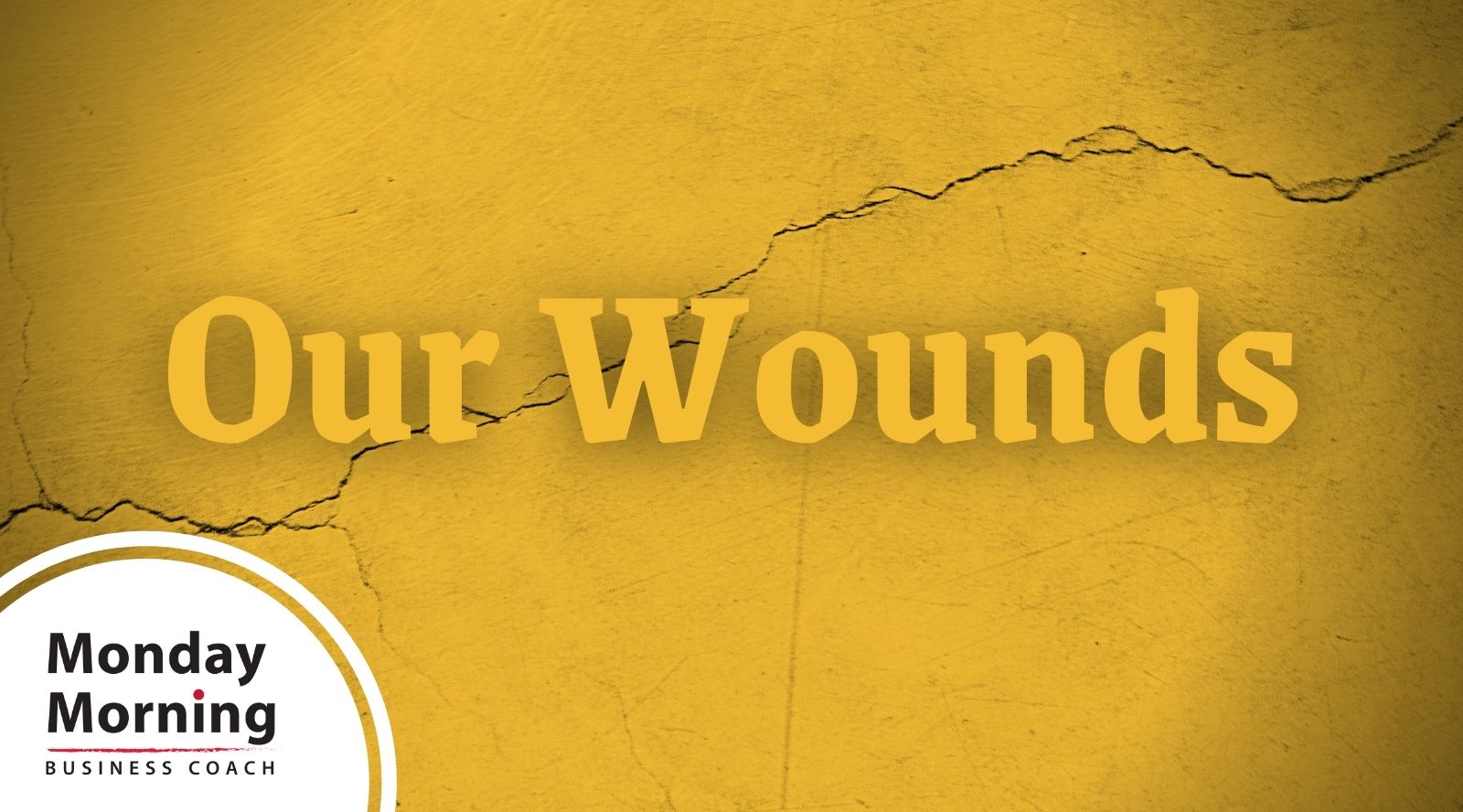For many years, psychology has defined trauma as something truly horrible that happened to you. As a result, it was most often tied to veterans and described as post-traumatic stress disorder.
This week we want to talk with you about trauma in a new way and in response to all that we’ve been through these past few years. We know this may feel dark to you and if you feel fragile around your own history or current situation, please be sure to take care of yourself.
In the past few years, the definition of trauma has been refined to include those experiences that have lasting adverse effects on a person’s life and connection to themselves – social, emotional, physical, and/or spiritual.
We’re talking about this today, because we’re hearing from our family, clients, and organizational leaders that there is a level of pain and distress in their lives right now, and it’s like no time they can recall.
We know that talking about trauma, or ‘wounding’, can feel hard. Yet, when you can start to name it and talk about the grief and loss that came with it, you can start to make sense of you experiences and can begin to reconnect with yourself. And, as we learn more about the brain, it’s become clear that a much wider range of experiences have long-term impacts on our lives.
During recent years, there’s been a lot of unpredictability.
This unpredictability creates uncertainty.
This uncertainty is wounding.
In a recent Harvard Business Review article, Our Brains Were Not Built for This Much Uncertainty, by Heidi Grant and Tal Goldhamer, (September 22, 2021) the authors said,
“You may already know that threat leads to ‘fight, freeze, or flight’ responses in the brain.
You may not know that it also leads to decreases in motivation, focus, agility, cooperative behavior, self-control, sense of purpose and meaning, and overall well-being.
In addition, threat creates significant impairments in your working memory: You can’t hold as many ideas in your mind to solve problems, nor can you pull as much information from your long-term memory when you need it.
Threats of uncertainty literally make us less capable, because dealing with them is just not something our brains evolved to do.”
Many people we’ve talked to resonate with this quote . . . and are relieved to know that they are sane! Stressed, yes, wounded, likely, but also sane.
There are several things you can do immediately to care for yourself and those you lead.
Change how you talk with yourself.
When you lose focus, get snarky with a family member, or feel like you’ve lost your memory, instead of angrily saying “WHAT IS WRONG WITH ME?” instead ask yourself, “What has happened to me that’s creating this reaction?” and then listen to yourself with compassion.
Change how you talk with others.
When someone is behaving in ways that are frustrating or disappointing, become more compassionate towards them by asking yourself, “What may be happening to them during this time?”
If it’s someone you’re comfortable asking, you might say “What’s happening in your life as you deal with the craziness that we’re living in?” And listen closely.
Connect with your values and purpose.
Throughout your day, spend some time connecting with your values and sense of meaning and purpose.
Remembering how much you love your work, or appreciate your colleagues, or are passionate about art, can help you reconnect with yourself. And, throughout your day, make sure you do some things that will give you a sense of accomplishment.
Make sure you’re caring for yourself and valuing your uniqueness and sense of purpose.
Nurture important relationships.
Identify the people who you can talk to openly about these times and how they’re impacting you. Brainstorm ways to get more predictability in your own world even though this big world is ever-changing.
Rest.
When our brains are working this hard, they use up more of our resources. Take a few minutes every hour or two to breathe and look around, walk outside and survey the world, take a nap, or get more sleep at night.
Rest comes in many forms and all of it will make you more capable and resilient. Not magically overnight, but over time you can see and feel a difference.
Take some time this week to practice these 5 steps and see if you find that you’re able to act with greater compassion toward yourself and toward others – especially when you can see your wounds or theirs.
Let us know how you’re doing. We’re here for you.
If you’d like support in
caring for yourself and
demonstrating care for others,
contact us today.


